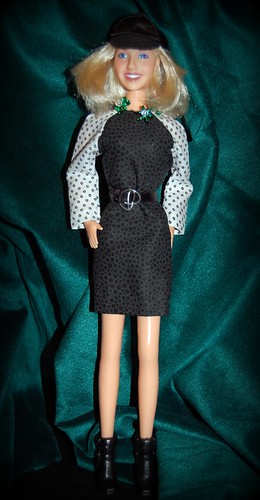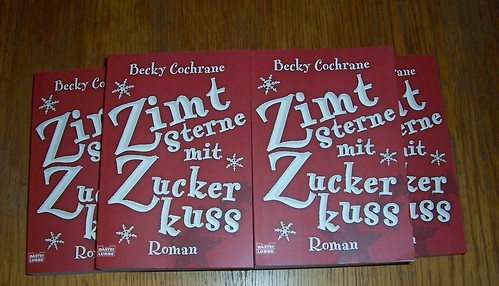When we lived in South Carolina, the church my parents took us to was so small it was in a house. I guess walls were removed to make one big room where we sat on folding metal chairs during services, and the bedrooms had been turned into Sunday school rooms.
 Here’s my father, cigarette in hand, standing on the front steps with the preacher. I don’t know the other gentleman, and can identify only one of the group (those hats!) standing on the porch behind them. The preacher’s name was U.A. Hall. That was his birth name–U.A.–just the initials (I think I might have even found him in a Hall family history online, but I can’t be sure because his birthdate isn’t listed). If pressed to say what the initials might stand for, he’d always say, “Useless Always.”
Here’s my father, cigarette in hand, standing on the front steps with the preacher. I don’t know the other gentleman, and can identify only one of the group (those hats!) standing on the porch behind them. The preacher’s name was U.A. Hall. That was his birth name–U.A.–just the initials (I think I might have even found him in a Hall family history online, but I can’t be sure because his birthdate isn’t listed). If pressed to say what the initials might stand for, he’d always say, “Useless Always.”
The first time he ever came to our house, probably the week after our initial visit to his church, my father had been doing yard work and had just stopped and popped open a cold beer. I’m not going to name this fundamentalist church in which my father had grown up, but trust me, drinking was NOT condoned. Not even a “little wine for the stomach’s sake,” as my parents and Uncle Gerald used to quote the New Testament book of Timothy. When my father asked if the beer bothered him, the preacher shook his head and said it was probably very refreshing on a hot day. That started them off on the right foot. In time, he became a close family friend. He’s the preacher who married David and Terri. We’d already moved to Alabama when he died unexpectedly of a heart attack in his forties, within a few months of Uncle Gerald’s death, a double loss that crushed my mother.
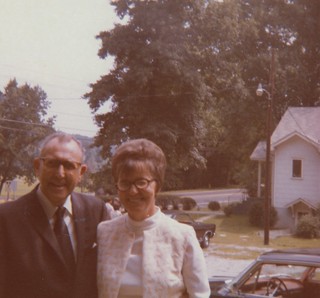 Here she’s standing next to him outside the church. No hat, but I’m particularly fond of this picture because it reminds me of Steel Magnolias:
Here she’s standing next to him outside the church. No hat, but I’m particularly fond of this picture because it reminds me of Steel Magnolias:
Shelby (about her mother M’Lynn): You can’t mess up her hair. You just tease it and make it look like a brown football helmet.
and later, M’Lynn, looking at herself in the mirror: Shelby was right, my hair does look like a brown football helmet!
Maybe one reason U.A. was a bit more openminded than he could have been was because he was divorced, quite uncommon for that time, and particularly uncommon for a minister. Among the people I remember from there is Ruby, who “kept company” with the preacher. It was Ruby who used to say, “Everybody has to go over Fool’s Hill,” a quote I used in A Coventry Wedding and still repeat to this day.
I also remember that one of the first things my father did after my parents became members of that church was paint a sign to put in front of it with the name, the preacher’s name, and the hours of worship (Sunday school; Sunday morning; Sunday night; and Wednesday Bible study, and members were supposed to attend all of those every week).
I was old enough by then to register my first awareness of the way things were in the South outside of military posts (where on weekends, kids took one of three huge Army green buses: the Jewish bus, the Catholic bus, or the Protestant bus. Those were our only divisions, other than either being an officer’s kid or not). But I saw segregation when we went to a nearby city for a “singing” (a big meeting of members from that denomination’s churches throughout the state to sing gospel songs together). When a group of black church members arrived, they filed up to the balcony to sit separately from the white people. I saw my (always liberal) mother’s eyes narrow and her lips get tight when she watched, and I wasn’t sure what was wrong, but I knew she didn’t like the division at all. (Her own eye-opening experience of bigotry came when she was seventeen and took a train to San Francisco. Maybe I’ll share that in a future post.)
 Here the preacher is sitting in the den of our house one Sunday afternoon. My mother always cooked a big Sunday meal, and she and the other church ladies took turns inviting U.A. to their homes for dinner. If I didn’t have this photo, I wouldn’t have remembered that my mother hung my horse painting on the wall with some of my father’s art. I remember that furniture so well (our second best after the new furniture went into the living room).
Here the preacher is sitting in the den of our house one Sunday afternoon. My mother always cooked a big Sunday meal, and she and the other church ladies took turns inviting U.A. to their homes for dinner. If I didn’t have this photo, I wouldn’t have remembered that my mother hung my horse painting on the wall with some of my father’s art. I remember that furniture so well (our second best after the new furniture went into the living room).
I believe the den might have been converted from a garage or a porch. A long row of high windows stretched across one end. Our dining room table and chairs were at the other end. The pull-down stairs to the attic were there. I remember hearing my parents pull them down one Christmas Eve and I crept out of my bedroom and into David’s bedroom, which was right off that room. I saw my father bringing a blue bike down from the attic. When I was told the next morning Santa had brought it for me, that was the end of that era of my childhood. But it was okay, because the blue bike took me on adventures all over that small town.
I also remember lying on the floor in the dark in the dining room/den, staring toward the night sky through that row of windows, and feeling scared that beings from another planet were going to land on earth. Who knows what TV shows or news stories prompted that particular fear, but it was far more real to me than the atomic bomb scares my older siblings had to contend with when they were in school. We still laugh about those–drop under your desk and cover your head with your hands? Yeah, that’s gonna help!
Martians and segregation notwithstanding, that small South Carolina town remains in my memory as one of the best places we lived. It became the hometown for a character in Three Fortunes in One Cookie. And of course, it’s how Terri came into our lives–and so, later, Daniel.


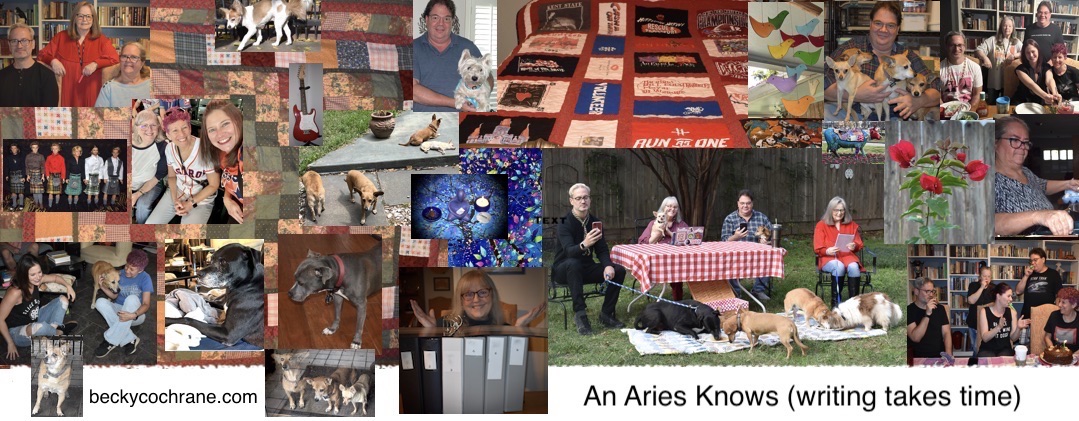

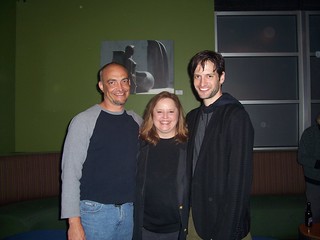 Do you remember your very first visit to The Compound? It was in November 2005, when Borders set up a benefit signing for us at Meteor to raise money to send to NOLA post-Katrina. You had a couple of Scotty books to sign (and that weekend, Tim and I proofread the galleys of Mardi Gras Mambo for you, I think), at least two Chanse books, and others including Midnight Thirsts and Shadows of the Night. We were signing at least two TJB novels as well as The Deal and the newly released Three Fortunes in One Cookie (RIP, little takeout cover).
Do you remember your very first visit to The Compound? It was in November 2005, when Borders set up a benefit signing for us at Meteor to raise money to send to NOLA post-Katrina. You had a couple of Scotty books to sign (and that weekend, Tim and I proofread the galleys of Mardi Gras Mambo for you, I think), at least two Chanse books, and others including Midnight Thirsts and Shadows of the Night. We were signing at least two TJB novels as well as The Deal and the newly released Three Fortunes in One Cookie (RIP, little takeout cover). Here’s my father, cigarette in hand, standing on the front steps with the preacher. I don’t know the other gentleman, and can identify only one of the group (those hats!) standing on the porch behind them. The preacher’s name was U.A. Hall. That was his birth name–U.A.–just the initials (I think I might have even found him in a Hall family history online, but I can’t be sure because his birthdate isn’t listed). If pressed to say what the initials might stand for, he’d always say, “Useless Always.”
Here’s my father, cigarette in hand, standing on the front steps with the preacher. I don’t know the other gentleman, and can identify only one of the group (those hats!) standing on the porch behind them. The preacher’s name was U.A. Hall. That was his birth name–U.A.–just the initials (I think I might have even found him in a Hall family history online, but I can’t be sure because his birthdate isn’t listed). If pressed to say what the initials might stand for, he’d always say, “Useless Always.” Here she’s standing next to him outside the church. No hat, but I’m particularly fond of this picture because it reminds me of Steel Magnolias:
Here she’s standing next to him outside the church. No hat, but I’m particularly fond of this picture because it reminds me of Steel Magnolias: Here the preacher is sitting in the den of our house one Sunday afternoon. My mother always cooked a big Sunday meal, and she and the other church ladies took turns inviting U.A. to their homes for dinner. If I didn’t have this photo, I wouldn’t have remembered that my mother hung my
Here the preacher is sitting in the den of our house one Sunday afternoon. My mother always cooked a big Sunday meal, and she and the other church ladies took turns inviting U.A. to their homes for dinner. If I didn’t have this photo, I wouldn’t have remembered that my mother hung my 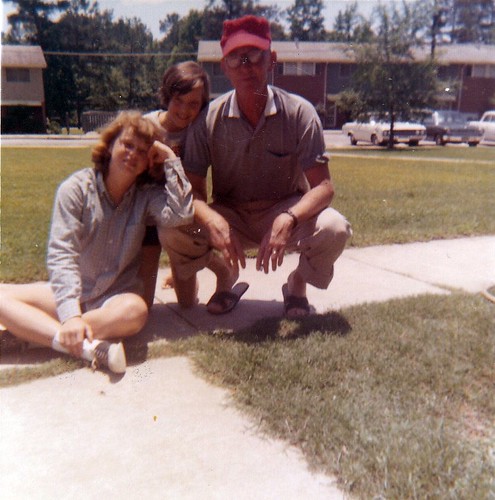
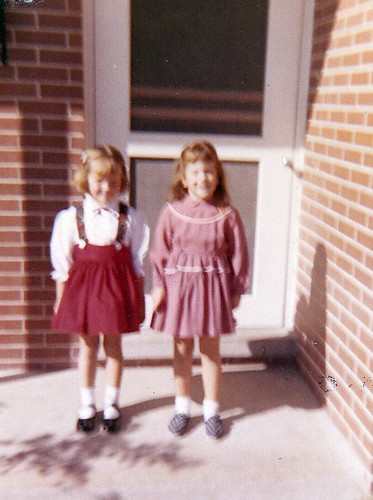
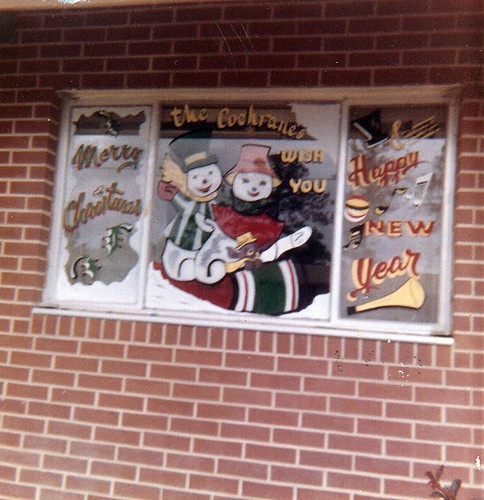
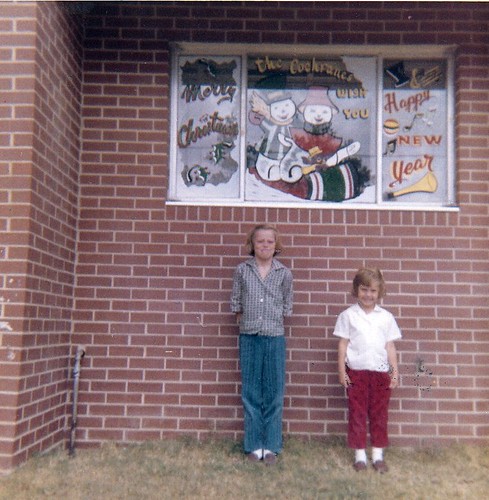
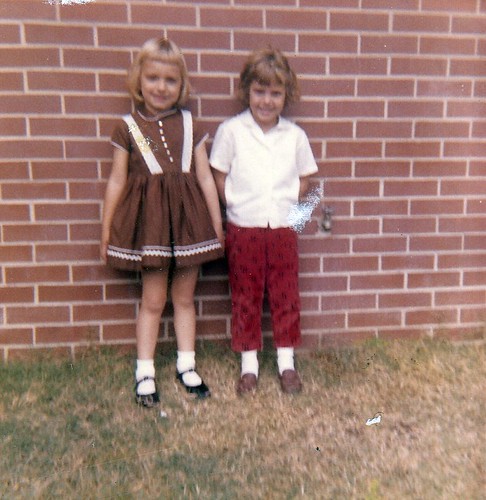
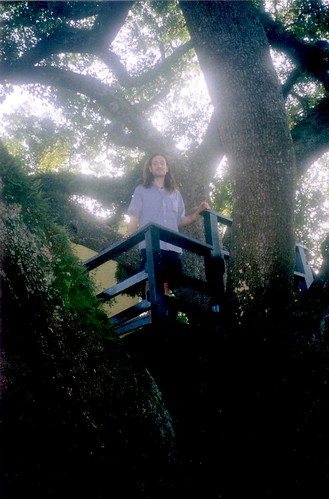


 I am a big dork who managed to forget that since Greg was going to be in Houston for a signing, it might be a good idea to order a couple of hardcover copies of his new title. Of course there were paperback copies available at
I am a big dork who managed to forget that since Greg was going to be in Houston for a signing, it might be a good idea to order a couple of hardcover copies of his new title. Of course there were paperback copies available at 

 This past Thursday, we not only didn’t have Survivor night (which I still haven’t seen, although it’s recorded), but I didn’t get to see the first episode of the Project Runway finale. We were attending
This past Thursday, we not only didn’t have Survivor night (which I still haven’t seen, although it’s recorded), but I didn’t get to see the first episode of the Project Runway finale. We were attending 




